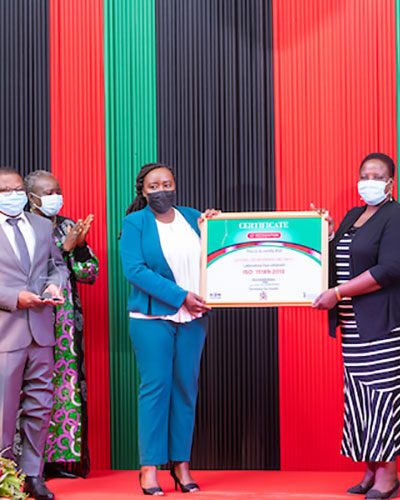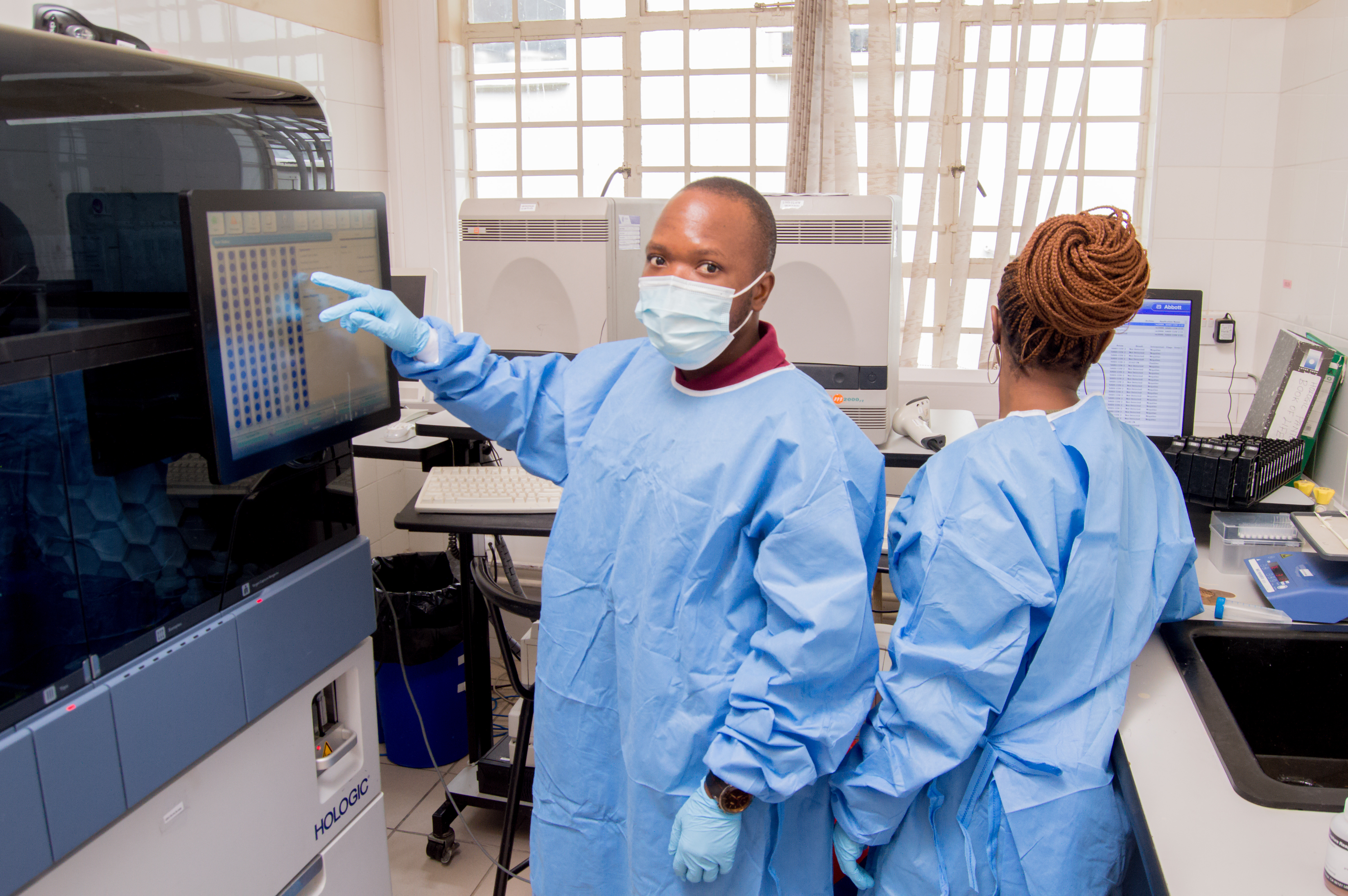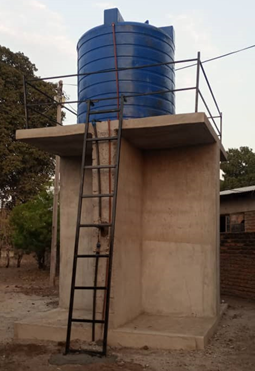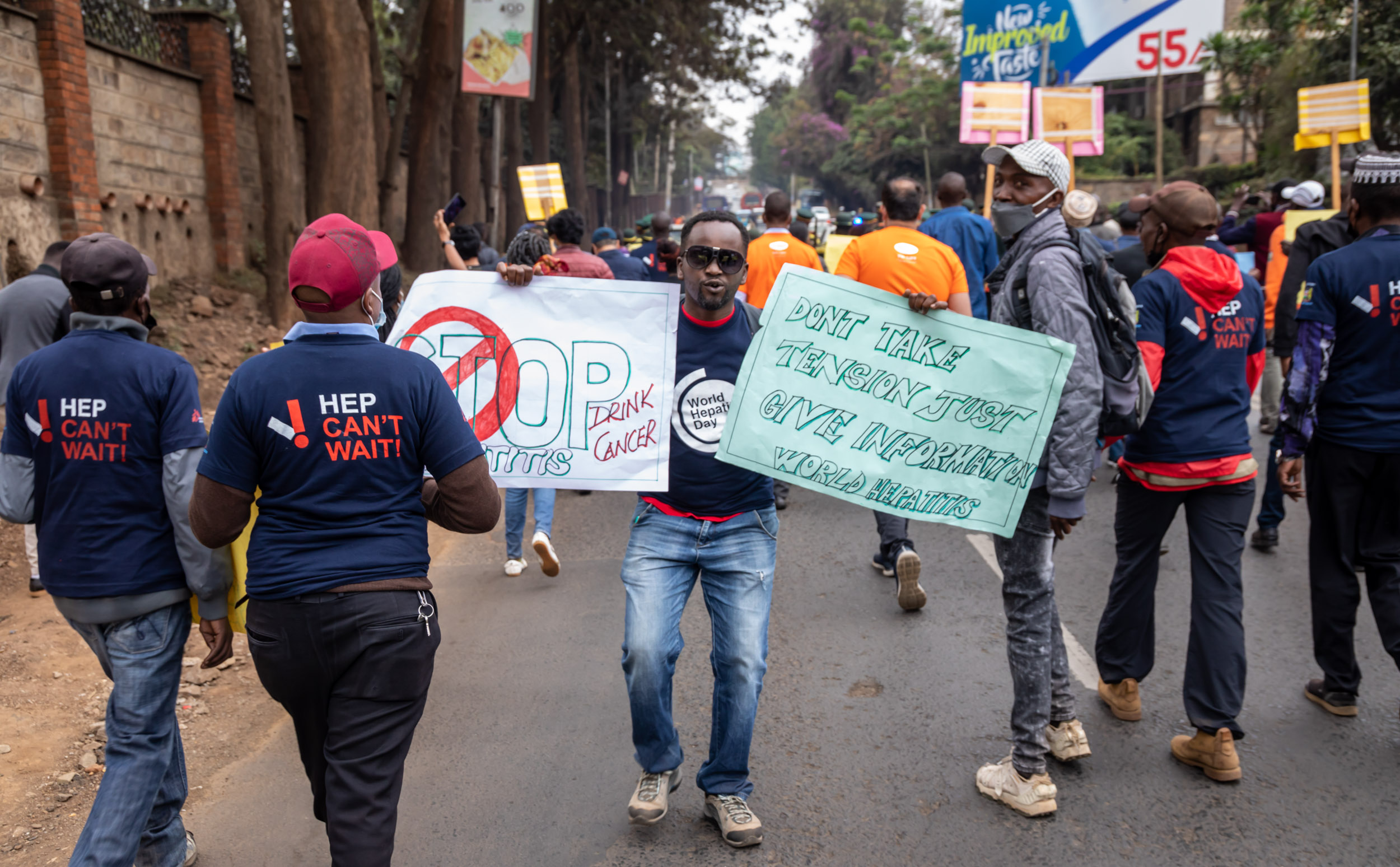June 30, 2021 | Andrew Tie

The University of Maryland, Baltimore through Ciheb, in conjunction with the Malawi Ministry of Health (MOH) and other partners, held an awards ceremony to celebrate the ISO 15189:2012 medical laboratory accreditation of six facilities in Malawi, four of which were supported by Ciheb.
The accreditations, given by the Southern African Development Community Accreditation Service (SADCAS), marks the first time these international standards have been achieved in Malawi. The Centers for Disease Control and Prevention and MOH brought Ciheb in as an implementing partner in 2019 to strengthen the quality and capabilities of laboratories in Malawi and support them to attain international accreditation standards.
The ceremony, held in Lilongwe, observed COVID-19 protocols of social distancing and masking. It included a tour of the pavilions, remarks from dignitaries, and a presentation of the accreditation awards.
“It is the intention of the University of Maryland to be in Malawi for a lot longer,” said Professor Alashl’e Abimiku, the principal investigator for the AMPLIFY grant that provides technical assistance to increase access to quality laboratory services. “This is just the start of a wonderful partnership. In most of the African countries that we support, we’ve operated for close to 20 to 30 years because we really believe in a long and meaningful partnership.”
Multiple guests of honor were in attendance including the Minister of Health, Honorable Khumbize Kandodo Chiponda, M.P.; the Secretary for Health Dr. Charles Mwansambo; U.S. Ambassador to Malawi Robert Scott; and others.
“I extend my sincere congratulations to the Ministry of Health, district health offices, hospital management teams, and the laboratory staff who have worked tirelessly under trying conditions especially when you consider COVID for this achievement,” Ambassador Scott said. “Although I and my embassy represent all 50 states in the United States, I have to admit I am myself from Maryland, so I am extremely proud it is a Maryland university that is your partner here.”
The six laboratories recognized for accreditation include:
- National HIV Reference Laboratory
- Partner in Hope Laboratory
- DREAM Balaka Laboratory
- DREAM Blantyre Laboratory
- Mwaiwathu Private Hospital Laboratory
- Malawi Liverpool Wellcome Trust Laboratory
To view the awards ceremony, click on the video below.
Contact
Center for International Health, Education, and Biosecurity
Institute of Human Virology
Anthony Okoth
Regional Communications Specialist
Related stories

Friday, July 14, 2023
Addressing Unprocessed HIV Viral Load Samples Backlog in Malawi
The health sector in Malawi was faced with a pressing backlog issue of unprocessed HIV viral load samples. These had accumulated due to reagent stockouts and persistent power outages in the country.

Friday, December 09, 2022
Ciheb Malawi Donates Equipment to Districts
University of Maryland Baltimore's (UMB) Ciheb Malawi recently donated water tanks, solar batteries, and computers to districts in Malawi for lab improvement. Laboratories are crucial to timely and quality health services not only for those living with HIV but also prevention of HIV infection. It is essential to ensure that laboratories and laboratory staff are well-equipped and well-trained to deliver services.

Monday, August 29, 2022
Kenya Celebrates World Hepatitis Day
Hepatitis A, B, and C are the most common of the viral hepatitis in Africa, with the African region accounting for 26% of the global burden for hepatitis B and Cin 2020.
Wednesday, June 01, 2022
UMB supports MoH in task-shifting COVID-19 testing
To expand access to COVID-19 testing to rural and hard-to-reach areas, the Ministry of Health (MOH) in Malawi decentralized testing from laboratories using conventional molecular platforms. The University of Maryland, Baltimore (UMB) – Ciheb Malawi AMPLIFY program trained laboratory personnel in peripheral facilities in using rapid antigen testing that can be performed by non-laboratory staff. The MOH started using COVID-19 rapid antigen testing in November 2021 and has continued expanding this service to new testing sites.

